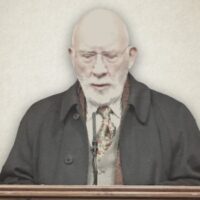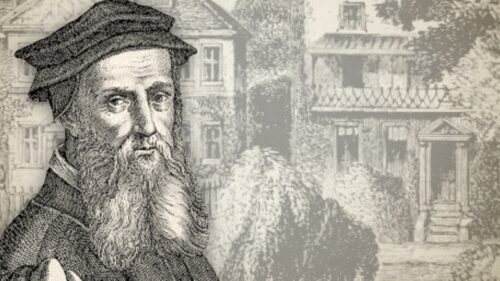
Letter Defending William Huntington
Sir:
It is understandable that one who identified himself so closely with the English Reformers, Whitfield and the Marrow Men should be criticised by Arminians. For Huntington, Arminians were Antinomians who rejected the condemning and convicting use of the law in evangelism, inviting sinners to approach God “as if they had never apostatized”. They believed that man was not totally fallen but was naturally able to make saving decisions. Huntington preached a full gospel whereas his Fullerite and Wesleyan critics taught respectively that the doctrines of grace were for believers only or to be rejected as ‘the religion of the Turks’.
Contrary to adverse criticism that Huntington stood alone, he was supported by a relatively large number of Independent, Anglican and Baptist ministers. Huntington upheld the Biblical teaching of Christ’s imputed righteousness which Fuller rejected and Wesley often ridiculed. Huntington was a great winner of souls and preached to thousands. He was able to reap a prodigious harvest, especially in his old age. Andrew Fuller complained of the increased blessings and church growth in the churches associated with Huntington whilst his own association churches shrunk.
Huntington’s congregation, though composed mostly of poor people, though even members of the Royal family attended his meetings, gave so liberally to the work of the gospel that Huntington’s major critics sent their people to approach those leaving Providence Chapel after the service, asking them for gifts to support their own churches. In his recommendatory foreword to J. H. Alexander’s fine book More than Notion, Dr. Martin Lloyd-Jones relates how he advised his Westminster Chapel congregation to make this book on Huntingtonian piety compulsory reading. Lloyd-Jones thanked God for the book and said that the people he described “show the vital difference between a head-knowledge of the Christian faith and a true heart experience.” This was the essence of Huntington’s ministry.
George Ella
——————————————
George M. Ella is a historian, author and biographer. His writings may be accessed at the online archived, ”Biographia Evangelica”.
George M. Ella, born February 1939 in Yorkshire, England, has lived most of his life on the European Continent. He is a retired Senior Civil Servant formerly employed in teaching, post-graduate teacher-training, chairing examination boards and curricula work. He holds degrees from London, Hull, Uppsala, Essen, Duisburg and Marburg universities with doctorates in English Literature and Theology. Dr. Ella has written regularly since the seventies for a number of magazines and newspapers and published numerous books on Church History, including biographies of William Cowper, William Huntington, James Hervey, John Gill, Augustus Montague Toplady, Isaac McCoy and Henry Bullinger besides works on doctrine and education. He is currently finishing the third volume of his series 'Mountain Movers'; a biography of John Durie; a work on Law and Gospel and further study material for the Martin Bucer Seminar. Dr. Ella is still internationally active as a lecturer and is a Vice-President of the Protestant Reformation Society. He is keenly interested in missionary work and has written on the spread of the Gospel amongst the Same people of Lapland, the people of India and the Native Americans. This present volume follows Dr. Ella's 'The Covenant of Grace and Christian Baptism', also published by the Martin Bucer Seminar. George Ella is married to Erika Ella, nee Fleischman, a former government administrator, and they have two sons Mark (41), Director of a Polytechnic College in Bremerhaven and Robin (39), Leading Senior Physician in a newly-built Geriatric and Psychiatric clinic in Dessau.
George Ella on Doctrinal Matters
George Ella's Biographical Sketches





